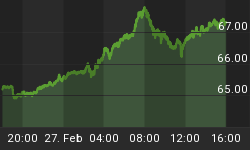In a Bloomberg Television interview with Ryan Chilcote in St. Petersburg today, Russian oligarch and Severstal CEO Alexey Mordashov said he has 'no pressure' in U.S. or Russia to dispose of assets and has not seen any short-term consequences from sanctions yet. Mordashov told Bloomberg's Chilcote he is 'quite optimistic' on interest shown for U.S. assets.
Video: No Pressure on Severstal From Russia Sanctions: CEO
Highlights:
On considering his options for his steel plants in Dearborn, Michigan and Columbus, Mississippi:
"Well, basically there are two options, to develop it and to stay. Or to dispose it, to create maximum value, to monetize, really which we accumulate the business assets. Because, well, we believe it's a very good set of assets and a very good... It's profitable. We invested a lot and it's up to the best in the country standards in the United States. But, of course, it's small by size for, how you say, for big potential consolidation in United States. Anyway, but we don't have any pressure to dispose it."
On whether he received an offer from US Steel:
"We are contemplating different options. We hope to build genuine and strong interest from all interested players in the industry. Of course I'm not prepared to disclose. Too much details... Well, it's a process. So far we are quite optimistic about the interest which we see. But we will see. It's not defined. In the end, we have good possibilities and good opportunities and good options to stay or to leave, it all depends upon that.
On how much politics figure in to the equation of whether he sells these steel plants:
"Not at all. Not at all."
On whether he feels comfortable doing business in the United States:
"Absolutely...I don't feel any specific pressure or any questions or any inquiries to ask from any authorities in the United States, neither in the United States nor in Russia. We are businesspeople. We are doing classical, normal business to contribute to the wealth, the prosperity of stakeholders, shareholders, management in place. We pay taxes."
On whether there have been consequences for Severstal and his businesses from recent sanctions:
"We don't feel it yet. To be frank, on specific sites, practically speaking, we don't see any short-term consequences at least yet. Because all functions have a more general rhetoric type political type nature. But what is really remarkable is the diminution of trust. It's definitely very, very important that might have long-term consequences. I hope there are no fundamentals for these sanctions to see forever. I hope that these genuine interests between Europe, United States, Russia, too cooperate which will help remove sanctions."
On whether his 5% stake in the first Russian bank to be sanctioned by the U.S., has caused any problems for him:
"No"
On whether the Treasury called him up and asked him to divest that stake:
"Not at all."
On whether he concerned about the demand for steel from the car makers who are shifting to aluminum:
"Yes, it's a concern. For steel industry in general and for our operation in United States and in Russia. Concern of substitutes. It's a very legitimate question for us because we should be always to stay competitive and should be sustainable. And, to be frank, it's a change, but I hope that steel will have the strength to overcome this challenge, because this challenge of substitutes is evident and actual (inaudible). And steel industry was always able to reinvent itself, to develop quality type of product possible to satisfy our customers. And I hope we could continue with this, but there is definitely short-term and long-term, other materials are a challenge for us."















